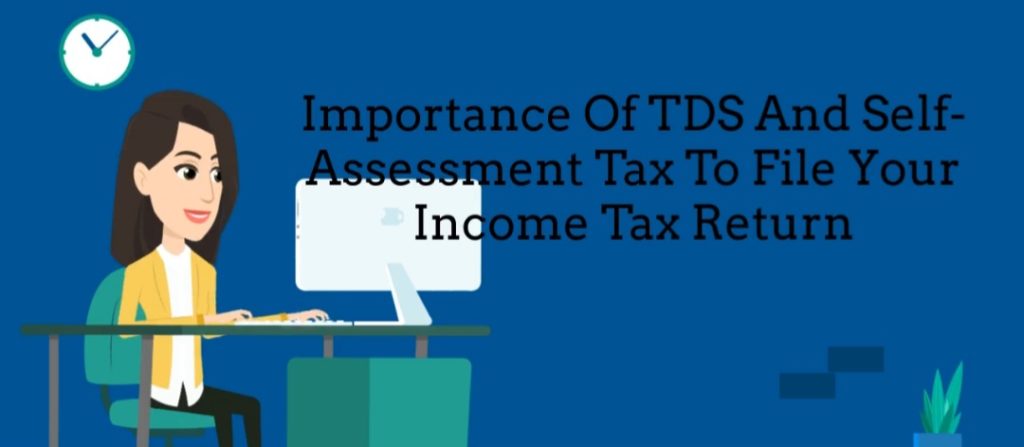An individual earns money from various sources- From Salary, Property, Side Business, etc. While TDS accounts for the tax to be paid from the salary which is deducted at the source, for the remainder of income, the individual has got to self-assess and pay taxes accordingly.
Here is the importance of TDS and Self-Assessment Tax to file your income tax return-
TDS (Tax Deducted At Source)
TDS stands for tax deducted at source. As per the Income Tax Act, any company or person making a payment is required to deduct tax at source if the payment exceeds certain threshold limits. TDS has got to be deducted at the rates prescribed by the tax department.
The company or person who makes the payment after deducting TDS is termed a deductor and therefore the company or person receiving the payment is termed the deductee. It’s the deductor’s responsibility to deduct TDS before making the payment and deposit an equivalent with the government.
TDS is deducted regardless of the mode of payment–cash, cheque or credit–and is linked to the PAN of the deductor and deducted.
TDS is deducted on the subsequent types of payments:
• Salaries
• Interest payments by banks
• Commission payments
• Rent payments
• Consultation fees
• Professional fees
However, individuals aren’t required to deduct TDS once they make rent payments or pay fees to professionals like lawyers and doctors.
TDS is one kind of advance tax. It’s a tax that’s to be deposited with the government periodically and therefore the onus of the doing an equivalent on time lies with the deductor. For the deductee, the deducted TDS are often claimed in the form of a tax refund after they file their ITR.
TDS Return
A deductor has got to deposit the deducted TDS to the government and therefore the details of an equivalent need to be filed in the form of a TDS return. A TDS return has got to be filed quarterly. There are different types of TDS deductions need to be filed using different TDS return forms.
Self-Assessment Tax
Individuals need to pay the Self-Assessment Tax (SAT) for income from other sources. There’s no specification for the date of payment. It will be paid online through a couple of simple steps. It also can be calculated with an easy procedure.
Individuals are expected to compute the ultimate liability of income tax after deducting the TDS amount from the source of income also because the advance tax payable for the financial year.
When the year is nearly over, if there’s any tax pending before filing an individual’s income tax return, a final amount that the individual is accountable for is calculated is known as the self-assessment tax. This is often the ultimate calculation before filing the income tax return . It is also referred to as the SAT.
Why Pay Self-Assessment Tax?
Generally, the SAT is payable by an individual associated with income from other sources. For instance, if an individual has missed out on an income when making the final payment in the form of installment of their advance tax, etc.
It could even be a chance that TDS wasn’t deducted or done at a lesser rate against the upper tax rate applicable to your income tax filing. It happens often for salaried individuals that a hard and fast deposit or from short term bonds he or she has been able to earn a large amount and hence haven’t mentioned it to your employer, driving the amount to not be considered for a tax deduction.
Therefore, the self-assessment tax are going to be required. SAT or self-assessment tax is procured a specific financial year-end. There’s no specification on the date of payment of this tax. The best time is to pay it as soon as possible, without awaiting the tax returns filing date, as the way to avoid payment of interest on the tax amount.

